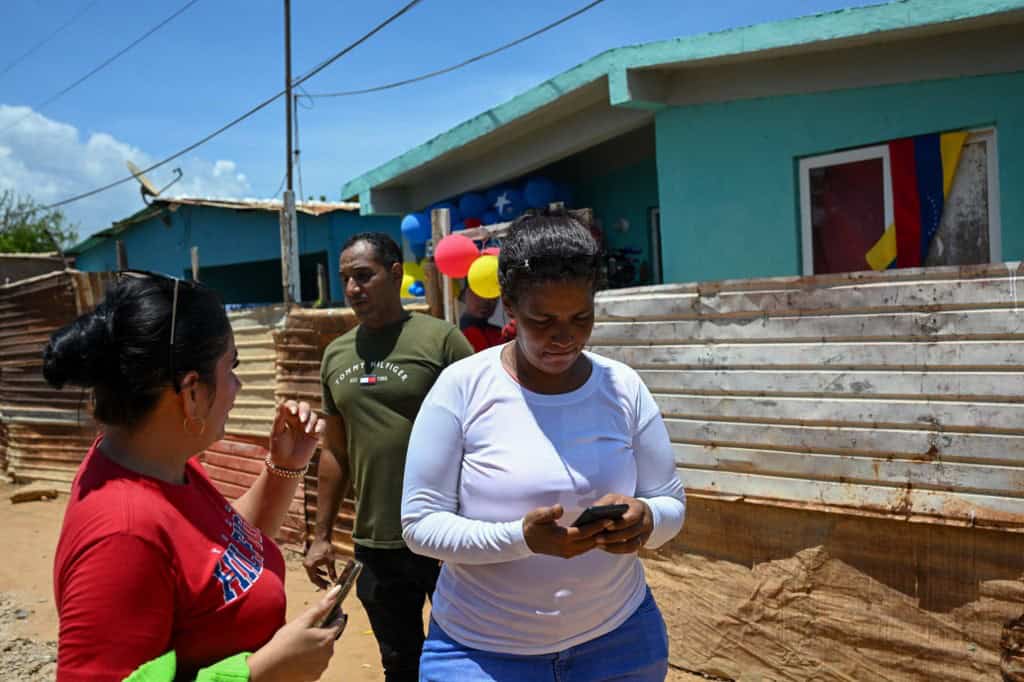“You’re going to rot in here. You’ll spend 300 years in prison.” That’s what Maikel Olivera says guards repeatedly told him during his four-month detention in El Salvador’s notorious mega prison. On Tuesday, the 37-year-old reunited with his mother in Venezuela, describing his time in custody as “hell.”
Olivera was one of 252 Venezuelans deported by the United States to El Salvador earlier this year and imprisoned under accusations—he says were baseless—of gang affiliation. Their release last Friday followed a controversial prisoner swap in which Venezuela returned the migrants in exchange for 10 Americans jailed in the country.
The emotional reunion between Olivera and his mother, Olivia Rojas, came only after four days of bureaucracy, medical exams, and interviews with Venezuela’s Public Ministry, which has since launched a criminal investigation into El Salvador’s President Nayib Bukele over alleged crimes against humanity.
Beatings Around the Clock
Olivera had fled Venezuela’s economic crisis and arrived in the U.S. seeking a better future. But just 54 days later, he was arrested and accused of belonging to the criminal gang Tren de Aragua. Eventually, he was transferred to the government’s high-security Center for the Confinement of Terrorism (CECOT), built by Bukele to house gang members.
“I lived through real hell,” Olivera said after returning to his hometown of Barquisimeto, 400 kilometers west of Caracas. “They beat us 24 hours a day—just for trying to take a shower. No legal aid, no visits, nothing.” “They told us: ‘You’re going to rot here.’ I thought I’d never make it back to Venezuela.”
You Were Born Again!
Olivera’s return was met with celebration. Neighbors flooded the streets with music and applause as he stepped out of a National Guard vehicle and into the arms of family wrapped in the Venezuelan flag. “You were born again, my love!” cried his mother, holding his face in her hands in disbelief.
Venezuela’s Attorney General Tarek William Saab presented photos of returned migrants with bruises, scars from rubber bullets, and fractured faces. One man had a broken mouth. Another bore a deep shoulder wound.
Among the victims was 33-year-old Andry Hernández Romero, a stylist from the Andes, who said he was sexually assaulted in custody.
Awaiting the Return of Another Son
In Maracaibo, 700 kilometers from the capital, Mercedes Yamarte is still waiting for her son Mervin. A banner on the wall outside her home reads: “Welcome back to your homeland, you were missed.”
A crowd of neighbors sat under the shade of trees, waiting for news. Some broadcast live on TikTok to an audience of over 1,500 viewers. Yamarte kept her eyes fixed on her phone.
“Seven days ago, I thought the sadness would kill me,” she told AFP. She has become a vocal advocate for the rights of Venezuelan migrants detained in El Salvador, organizing protests and leading delegations to government offices and media outlets.
Let Him Never Leave Again
“I’m shaking with emotion,” said Mervin’s wife, Jeannelys Parra, 28, who was left to care for their six-year-old daughter alone after he left for the U.S. in search of work. Mervin had traveled north in 2023 alongside his brother Jonferson, crossing the Darién Gap on foot.
A year later, two more siblings, Juan and Francis, attempted the same journey. Francis turned back in Mexico; Juan remains in the U.S., living in hiding and working construction jobs while evading immigration authorities.
After a crackdown ordered by former U.S. President Donald Trump, Jonferson fled to Mexico and was eventually flown home by the Venezuelan government. “My brothers are good people,” he said “They’ve never been involved in crime. Just humble folks chasing a better future who ended up in a nightmare.”






